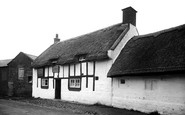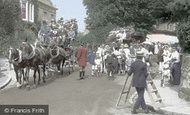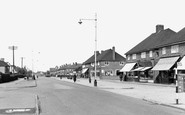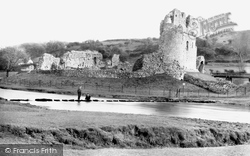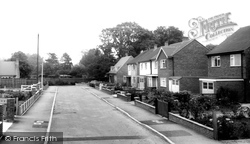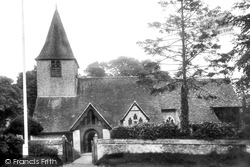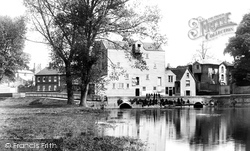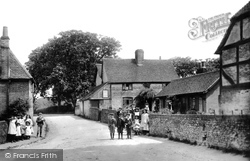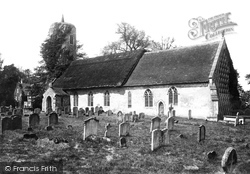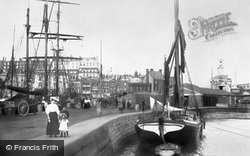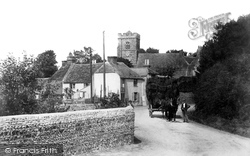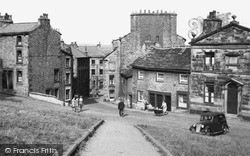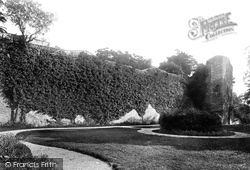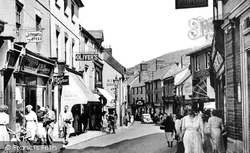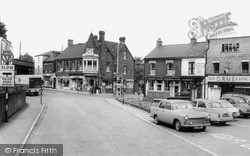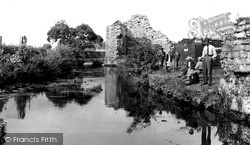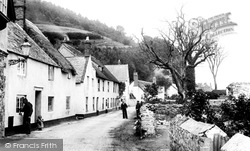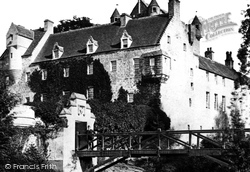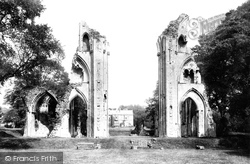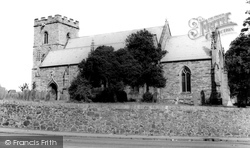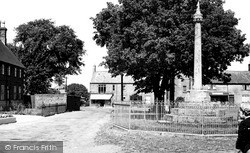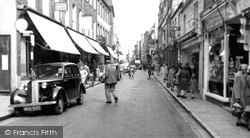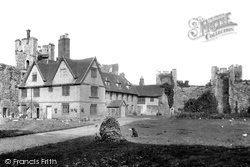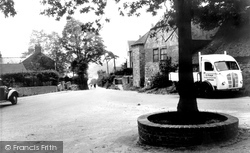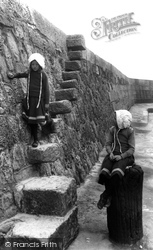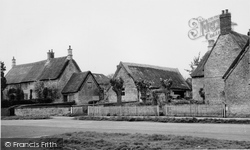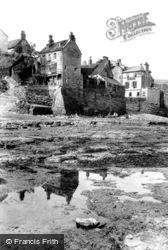Places
25 places found.
Those places high-lighted have photos. All locations may have maps, books and memories.
- East Wall, Republic of Ireland
- Pell Wall, Shropshire
- Wall, Northumberland
- Heddon-on-the-Wall, Northumberland
- Walls, Shetland Islands
- Wall, Cornwall
- Wall, Staffordshire
- East Wall, Shropshire
- Wall End, Kent
- Hobbs Wall, Avon
- Wall Bank, Shropshire
- Wall Nook, Durham
- Knowl Wall, Staffordshire
- Hazelton Walls, Fife
- Wall Mead, Avon
- Mid Walls, Shetland Islands
- Greetland Wall Nook, Yorkshire
- Aston le Walls, Northamptonshire
- Wall Heath, West Midlands
- Wall Hill, Greater Manchester
- Wall End, Cumbria (near Millom)
- Wall under Heywood, Shropshire
- Dale of Walls, Shetland Islands
- Bridge of Walls, Shetland Islands
- Hole-in-the Wall, Hereford & Worcester
Photos
516 photos found. Showing results 981 to 516.
Maps
172 maps found.
Books
Sorry, no books were found that related to your search.
Memories
1,989 memories found. Showing results 491 to 500.
My Birthplace
My mother, Lily Mathtews and I, were both born in the same miner's cottage at 109 Station Rd, just cross from the Welcome Church. She was born in 1903 and I in 1932. My granny, Ada, was an artist and moved to 8 Sunnyside, and ...Read more
A memory of Cramlington in 1940 by
Blakelaw 1962 1982
1962 - 1982, growing up in Blakelaw, living in Lindfield Avenue going to the Walling Infant and Junior School, Blakelaw Lower and Upper School. Playing football using the garden gates as goals, playing football for Blakelaw ...Read more
A memory of Blakelaw by
Oakwood
I lived in Oakwood in the 50s as a child and would regularly be in Oakwood park all day on a Saturday. Quick return home for lunch in between playing on the swings, fishing nets at the wild pond, buying a packet of crisps ...Read more
A memory of Southgate
Mere Memories
My memory is not so much of the Wheatsheaf, although I did visit a few times during my youth, a nice place to take a new girlfriend for a drive. But nearby is the Mere, a huge lake in the middle of an agricultural area. When I was a ...Read more
A memory of Raby
School Days
I have fond memories recalling the time spent at the Junior school in Burnopfield which I attended from 1956 to 1962. The Headmaster was Mr John Morgan. He was an inspiring teacher, firm but fair, he made us children understand the ...Read more
A memory of Burnopfield in 1960 by
My Great Grandparents Honeymoon C.1890
Please can somebody tell me what the building is with the sign on the top of the wall? I have a honeymoon photo of my great grandparents taken on a horse and coach around 1890. The sign says .....ish's Family ...Read more
A memory of Shanklin by
Greystone Cottages
My earliest memories are living in no 6 Greystone Cottages. We had no inside loo and had to go to the end of the terrace for the loo. We moved to Hillary Close, Salterbeck for a while to allow modernisation to take ...Read more
A memory of High Harrington in 1953
Memories From An Ex Sankey Lad 1963
I left Great Sankey at the age of 13, having lived at 37 Park Road with Mum and Dad and brother Chris, from the age of five. I initially attended Great Sankey Primary School on Liverpool Rd. I think where ...Read more
A memory of Great Sankey in 1963 by
Perks
I remember going to get groceries from a shop called Perks (think was the name). It had those green and white (or black) mosaic tiles on the walls. Old fashioned scales, and I always loved the SPAM they sold! I seem to remember one of the ...Read more
A memory of Corby in 1950 by
Waterfoot Is Still My Home After 54 Years.
I was born in 298 Burnley Road East on August 18th 1945. The Nurse who delivered me was Nurse Bowe, who was a good friend of my Gran's (Teresa Whittaker, nee O'Brien). All my Aunties and Uncles were born ...Read more
A memory of Waterfoot by
Captions
1,668 captions found. Showing results 1,177 to 1,200.
The timber palisade was replaced by a stone curtain wall in the early 13th century; here we can see the remains of the 12th-century keep.
Although lacking hedges and trees, the gardens are maturing behind fences and dwarf walls. The local council has already made a start on digging up the road and footpaths.
You can see evidence of Saxon work in the walls of the nave, as well as the delicate sculpture of four Norman arches.
The youths sitting on the wall in front could be posing for the camera, or they might just be dangling a line into the mill stream to see what they might catch.
Fifteen children have been neatly assembled by the photographer in front of the brick and half-timber cottages that comprised this small village, originally called Clandon Abbots.
The east wall has diaper patterns in stonework, which continue across the window.
This view of the middle wall of the harbour shows a typical Edwardian mother and her two children posing for the photographer. Behind her the busy life of the harbour continues.
A four-wheeled cart is pulled by two horses in tandem and appears to be loaded with brushwood faggots; all of the action is halted whilst waiting patiently for the photographer.There is a fine flint
We are looking down Castle Hill, by the wall of Lancaster Castle. St Mary's Parade is to the left, going up to the church. The Judge's Lodgings are at the bottom of Castle Hill down the lane.
The most infamous event in the castle's history occurred in the hall, situated just behind this outer wall.
The pedestrians walking towards the camera are heading for the High Street and, no doubt, the market.
The group of buildings with the clock have all gone to make way for a road system around Oakengates. Notice also the little white building on the right next door to George Orme.
An unusual view of the Abbey Gateway—in the centre—and the bridge over the Cornmill Stream, a tributary of the River Lea, with people relaxing around the broken walls.
All the stone walls on the right went for the promenade extensions, but I suppose one should be grateful that Minehead's rebuilding mania did not sweep all of the town's seafaring past away.
The central tower of the castle dates from a licence of 1454 when the thane was permitted to erect Cawdor 'with walls and ditches and equip the summit with turrets and means of defence, with warlike provisions
Comparison of this view with that seen today shows that some features have been restored inside the arch of the second sto- rey of the left-hand wall.
Raised above the road, behind a rather forbidding local stone boundary wall, the rather stumpy three-stage crenellated west tower is all that remains of the medieval church.
The railings have gone, as have the brick wall and the trees behind it. The shop under the white blind is now named Something Fishy.
On the adjoining wall is a plaque with the information that William Barnes lived here at about the same time - the older poet influenced the younger.
The castle, built between 1190 and 1210, is amongst the earliest castles in England to be constructed with a fortified curtain wall.
The two old houses in the centre show how piecemeal were the alterations carried out by various owners down the centuries: below each has a wall of stone rubble, and above at least two courses of brick
One of the most memorable images in the entire Frith archive, this intimate shot of the Cobb wall was inspired by Jane Austen and Alfred, Lord Tennyson.
Until 1928, when it was burnt down, the Hall stood at the east end of the village.
For decades, just as in this picture, people have sunned themselves along the sea wall. The Bay Hotel is on the right.
Places (25)
Photos (516)
Memories (1989)
Books (0)
Maps (172)

